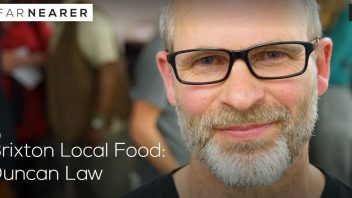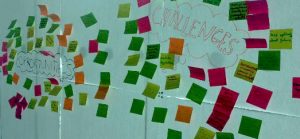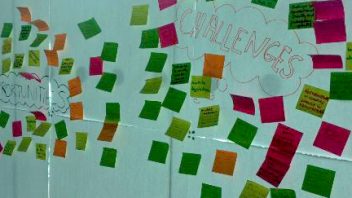Support and training for Economic Evaluation projects

Several Transition Initiatives have already conducted an Economic Evaluation activity (called an Economic Blueprint in some places), and more are in the process of doing so. It’s early days, but so far the results have been very positive, and we’re learning quite a lot from the experience. We’re seeing growing interest from TIs around the world who want to do their own Economic Evaluation, so we have assembled the processes, experiences and learnings into a support package that can help TIs (and similar community groups) who want to do their own version.
Why do an Economic Evaluation (EE)?
We think a successful EE process will help you do the following things:
- Engage your local economic leaders and organisations e.g. local councils, businesses, colleges etc.
- Develop a deeper understanding of your local economy.
- Identify opportunities for new Transition-oriented enterprises.
- Begin to build networks of existing businesses, by sector.
- Support the growth of key resilience-building sectors, such as food, renewable energy, retrofitting.
- Broaden the reach and impact of your Transition Initiative.
The support package
Introductory webinar
Jay Tompt (EE course co-ordinator) and Fiona Ward (REconomy project manager) gave a webinar that explained more about the EE process. Here’s a recording of the first 20 minutes, unfortunately the webinar system just recorded the beginning as it’s a pilot version of the software, but next time we will ensure the whole thing is recorded. Meanwhile this gives you a feel for the experience and the content. Skip to 6:30 to miss the initial technical instructions and check-in. We will schedule another one soon or/and have 1 to 1 discussions with interested groups.
Course handbook
We have developed a handbook that helps you go through the stages of the EE process. It supports self-directed activity over roughly a 6-9 month period (though this varies widely). It includes guidance, recommended activities and useful samples that you can adapt for your own use – here’s an outline of the contents. We are just finalising the handbook based on initial feedback and will offer it more widely as part of the support package.
Peer support group & one on one help
We have regular online meetings with the group of people from TIs who are actively doing this work, including those not just from the UK. Typically we discuss progress in each place, and talk about challenges and barriers and also successes. Specific topics are sometimes discussed and we bring in ‘experts’ who have experience in that particular area. This is an emerging group and the way the group works and is organised is subject to change! Some one on one support is also available.
Accessing the support
Please email Jay Tompt and arrange to have an initial chat about your proposed EE project, and how we can best help you.
Important pre-requisites
Transition is based on community-led change. The EE process is designed to be facilitated by a community group such as a Transition Initiative, and other community groups with similar aims. It is not suitable for an individual.
We strongly suggest that your group should have sufficient funding in place to undertake the EE process. It can take at least 3-6 months to raise funding. The first 3 x TIs to do an EE each had a budget that covered around 75 days worth of effort, plus some costs – roughly £10,000-£15,000 in the UK depending on your day rates. We don’t feel it’s viable to run this process based on volunteer effort alone (but we have a TI trying to prove us wrong!).
You also need access to the required skills including project management, data analysis, report writing, report design and people who can interact credibly with senior people from a range of organisations. Ideally, you have some existing relationships with key organisations in your community, and some track record of catalysing change there.
These conditions will help ensure your EE is as successful as possible – but if you don’t have these things yet, don’t worry! We are finding ways we can help you build your capacity, for example, to help you gain the skills you need to fundraise and then our new Primer also helps you start your own EE project.







Connect